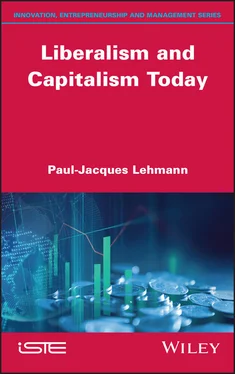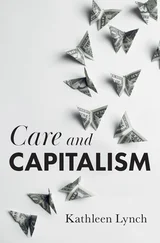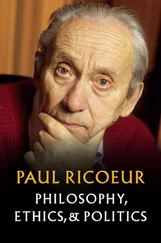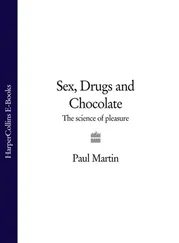By exploring the contributions of these writers, the idea behind this book is to try to understand how the evolution of the general environment of civilization has led first to the emergence of a new way of approaching economic life and the problems associated with it, and subsequently to its development thanks to innovations in numerous fields (legal, institutional, technical, etc.).
This first part of the book thus enables us to consider the evolution of liberalism and capitalism by investigating whether the conditions that presided over their emergence are, at the dawn of the 21st century, still present, and whether the hypotheses put forward as to their appearance with regard to human behavior are still relevant at the dawn of the third decade of the 21st century, at a time when the globalization of the economy, a thousand leagues away from the situation that existed at the birth of these two systems and being one of the conditions of their existence, is increasingly called into question. This analysis seems all the more necessary because, despite the advances to which these systems have unquestionably led in the economic (with ever-increasing wealth) and social (with a generalized decline in poverty in the world, even if precariousness constitutes a new source of challenges to be resolved) fields, there are countless critics of the principles on which liberalism and capitalism are based because of the malfunctions they have essentially caused since the stock market crash of 1929. Indeed, these two systems are often the subject of a real crisis of legitimacy and are supposed to be responsible for all the evils that strike people in their daily lives, in a world where information, whether verified or truncated, is disseminated everywhere and instantaneously.
This introspective study is also indispensable because we can predict, without much risk of being refuted, that humans will have to evolve in a capitalist environment for a long time to come. Indeed, on the one hand, its most serious competitor, collectivism, has either disappeared, after the fall of the USSR, or has shown its limits and is facing serious difficulties, as irrefutably proved by the examples of North Korea and Cuba. On the other hand, the alternative systems proposed are struggling to establish themselves and are limited to local experiments, far from having a global reach.
This observation should not prevent us from asking the question of whether it is the principles of capitalism that are the cause of the abuses observed or whether it is their implementation by humans that is responsible for them. In the latter case, without necessarily returning to the original conditions of this system, some of which have, for that matter, disappeared, we must reflect on the vital improvements that we must strive to establish: the world is changing, thus liberalism and capitalism must change too.
Writing of this book began back when the word “coronavirus” was known only to a few specialists and the word “lockdown” was, for most people, a theoretical situation. It was completed when the current health crisis had begun to show its disastrous consequences. Liberalism and capitalism were accused not of being directly responsible for it, but of having precipitated its most harmful economic and social effects.
The changes that it has already brought about certainly make this even more necessary, but we must be careful not to “throw the baby out with the bathwater”.
1 1Alexis Henri Charles Clérel, Count of Tocqueville, was born on July 29 1805 in Paris into an old Norman noble family. His father was a soldier in the Constitutional Guard of Louis XVI, before narrowly escaping the gallows and becoming a Prefect, then a Peer of France under the Restoration. After studying law, Alexis de Tocqueville became a legal trainee at the Court of Versailles. He then undertook numerous trips to Italy, the United States (sent by his administration to undertake a mission on the penitentiary system of that country), England, Switzerland, Algeria, Germany and more. After becoming a member of the Académie Française, he embarked on a political career: he was deputy of Valognes on three occasions and general x Liberalism and Capitalism Today councillor of the Manche on a few occasions, where he became president for four years; he was a deputy in the Constituent Assembly in 1848, then in the Legislative Assembly in 1849, the year in which he was appointed, for five months, as Minister of Foreign Affairs. Opposing the coup d’état of December 2 1853, three of his works through which he expressed his political ideas, some of which had economic consequences, made him famous: De la démocratie en Amérique, Mémoire sur le paupérisme and L’Ancien Régime et la Révolution. He died on April 16 1859 in Cannes.
2 2Karl Emil Maximilian Weber was born on April 21 1864 in Erfurt, Germany, into a Protestant bourgeois family. His father, an industrialist, was a member of the liberal-national party in the Reichstag. While taking courses in political economy, philosophy, history and theology, Max Weber studied law and received his doctorate in 1889 with a dissertation on “The Development of Commercial Partnerships in the Italian Cities of the Middle Ages”. In 1891, he wrote his doctoral thesis on “The Significance of Roman Agrarian History for Public and Private Law”. In 1893, he was appointed professor of the history of Roman law and commercial law at the University of Berlin. In 1894, he was appointed chair of political economy at the University of Freiburg. In 1897, suffering a serious nervous breakdown, he had to postpone his activities as a professor and researcher for six years. From 1919, he held the chair of sociology at the University of Munich. His most famous contributions are, in economics: The Stock Exchange, The Protestant Ethic and the Spirit of Capitalism and Economy and Society; in the history of religion: The Religion of China, The Religion of India and Ancient Judaism; and in politics: Le Savant et le politique. He died on June 14 1920 in Munich.
3 3Boudon, R. (2004). Pourquoi les intellectuels n’aiment pas le libéralisme. Odile Jacob, Paris.
PART 1
The Conditions in Which Liberalism and Capitalism Appeared
Capitalism is not a natural economic state and therefore had no reason to appear at the same time as humans. It is therefore not surprising that the pre-capitalist period was much longer than the capitalist period. Capitalism is the product of a long process of individual behavioral transformation in all areas of human existence, with consequences for economic life. Indeed, one can certainly discover, at all times and in all countries, scattered capitalist operations, but never as a complete economic system, because in any case, for Max Weber (2010a, author’s translation), “one can only really speak of capitalism where there is a true economic spirit”.
Thus, a certain form of capitalism has always existed, almost everywhere, in the form of the capitalism of mercantile exchange, served by a small number of people who have grown rich in particular activities (financiers, arms dealers, etc.). These wealthy citizens subsequently invested their wealth in owning land and acquiring ships, which allowed the countries that hosted them, such as Greece, to achieve dominance in the maritime world and in commercial enterprises.
Moreover, capitalism did not appear everywhere at the same time, since human evolution did not manifest itself in the same way on all continents: for reasons that will be developed in more detail later, capitalism only really appeared for most historians in the 16th century, and solely in the West, even though Weber believes that it was born at the end of Antiquity, from the 5th century onwards. Indeed, it is from this date that both the political and legal conditions and the economic and sociological conditions necessary for its existence were met.
Читать дальше












